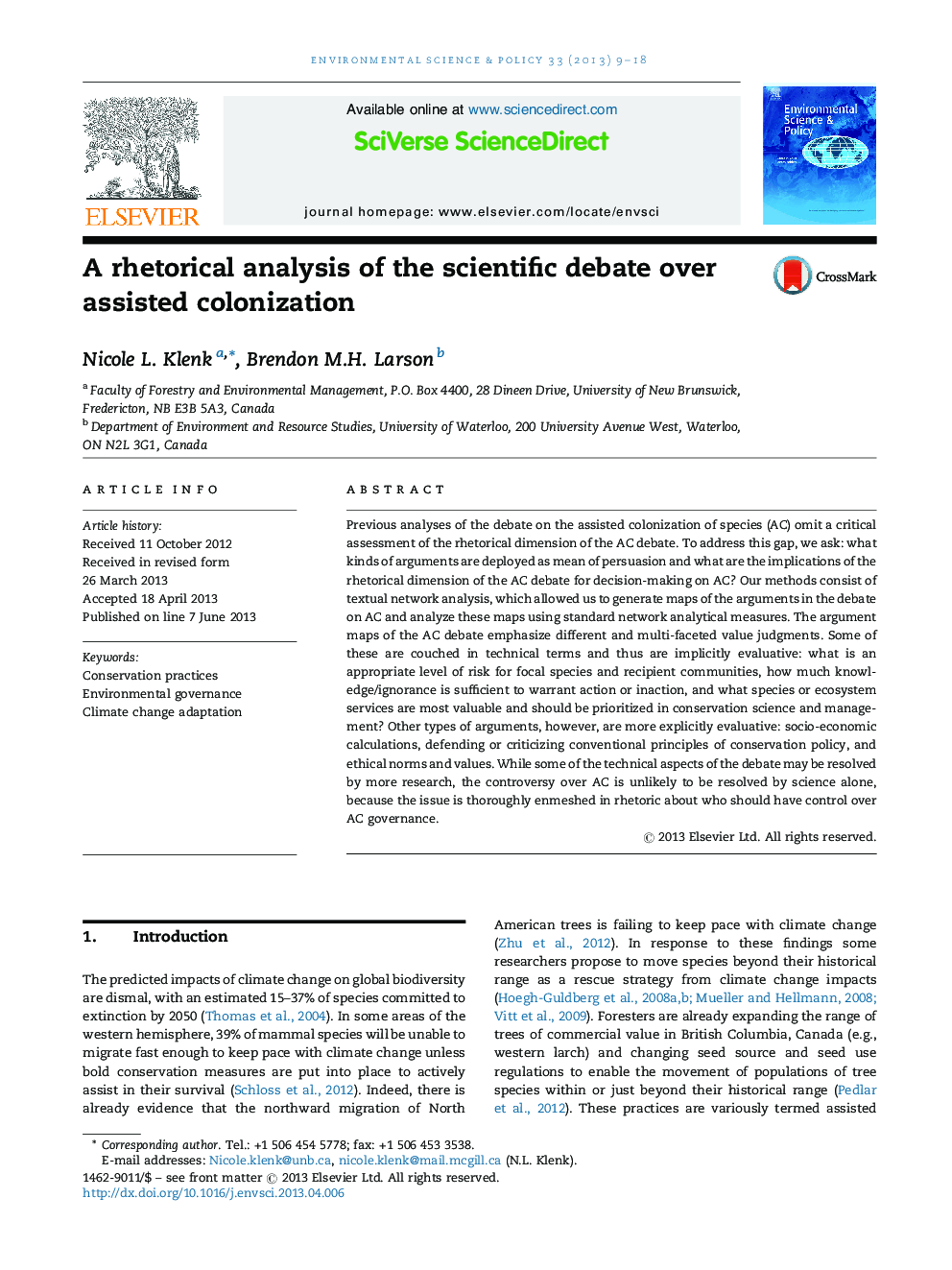| کد مقاله | کد نشریه | سال انتشار | مقاله انگلیسی | نسخه تمام متن |
|---|---|---|---|---|
| 1053638 | 1485073 | 2013 | 10 صفحه PDF | دانلود رایگان |

• Argument maps illustrate the rhetorical dimensions of the debate over AC.
• Proponents and opponents of AC use different rhetorical strategies.
• At its core the scientific debate over AC is political.
Previous analyses of the debate on the assisted colonization of species (AC) omit a critical assessment of the rhetorical dimension of the AC debate. To address this gap, we ask: what kinds of arguments are deployed as mean of persuasion and what are the implications of the rhetorical dimension of the AC debate for decision-making on AC? Our methods consist of textual network analysis, which allowed us to generate maps of the arguments in the debate on AC and analyze these maps using standard network analytical measures. The argument maps of the AC debate emphasize different and multi-faceted value judgments. Some of these are couched in technical terms and thus are implicitly evaluative: what is an appropriate level of risk for focal species and recipient communities, how much knowledge/ignorance is sufficient to warrant action or inaction, and what species or ecosystem services are most valuable and should be prioritized in conservation science and management? Other types of arguments, however, are more explicitly evaluative: socio-economic calculations, defending or criticizing conventional principles of conservation policy, and ethical norms and values. While some of the technical aspects of the debate may be resolved by more research, the controversy over AC is unlikely to be resolved by science alone, because the issue is thoroughly enmeshed in rhetoric about who should have control over AC governance.
Journal: Environmental Science & Policy - Volume 33, November 2013, Pages 9–18